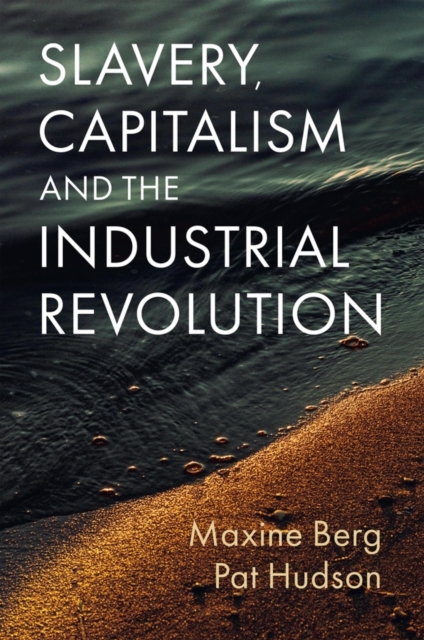Slavery, Capitalism and the Industrial Revolution

Slavery, Capitalism and the Industrial Revolution
The role of slavery in driving Britain's economic development is often debated, but seldom given a central place.
In their remarkable new book, Maxine Berg and Pat Hudson 'follow the money' to document in revealing detail the role of slavery in the making of Britain's industrial revolution. Slavery was not just a source of wealth for a narrow circle of slave owners who built grand country houses and filled them with luxuries. The forces set in motion by the slave and plantation trades seeped into almost every aspect of the economy and society.
In textile mills, iron and copper smelting, steam power, and financial institutions, slavery played a crucial part. Things we might think far removed from the taint of slavery, such as eighteenth-century fashions for indigo-patterned cloth, sweet tea, snuff boxes, mahogany furniture, ceramics and silverware, were intimately connected. Even London's role as a centre for global finance was partly determined by the slave trade as insurance, financial trading and mortgage markets were developed in the City to promote distant and risky investments in enslaved people.
The result is a bold and unflinching account of how Britain became a global superpower, and how the legacy of slavery persists. Acknowledging Britain's role in slavery is not just about toppling statues and renaming streets. We urgently need to come to terms with slavery's inextricable links with Western capitalism, and the ways in which many of us continue to benefit from slavery to this day.
PRP: 225.00 Lei
Acesta este Prețul Recomandat de Producător. Prețul de vânzare al produsului este afișat mai jos.
180.00Lei
180.00Lei
225.00 LeiLivrare in 2-4 saptamani
Descrierea produsului
The role of slavery in driving Britain's economic development is often debated, but seldom given a central place.
In their remarkable new book, Maxine Berg and Pat Hudson 'follow the money' to document in revealing detail the role of slavery in the making of Britain's industrial revolution. Slavery was not just a source of wealth for a narrow circle of slave owners who built grand country houses and filled them with luxuries. The forces set in motion by the slave and plantation trades seeped into almost every aspect of the economy and society.
In textile mills, iron and copper smelting, steam power, and financial institutions, slavery played a crucial part. Things we might think far removed from the taint of slavery, such as eighteenth-century fashions for indigo-patterned cloth, sweet tea, snuff boxes, mahogany furniture, ceramics and silverware, were intimately connected. Even London's role as a centre for global finance was partly determined by the slave trade as insurance, financial trading and mortgage markets were developed in the City to promote distant and risky investments in enslaved people.
The result is a bold and unflinching account of how Britain became a global superpower, and how the legacy of slavery persists. Acknowledging Britain's role in slavery is not just about toppling statues and renaming streets. We urgently need to come to terms with slavery's inextricable links with Western capitalism, and the ways in which many of us continue to benefit from slavery to this day.
Detaliile produsului









